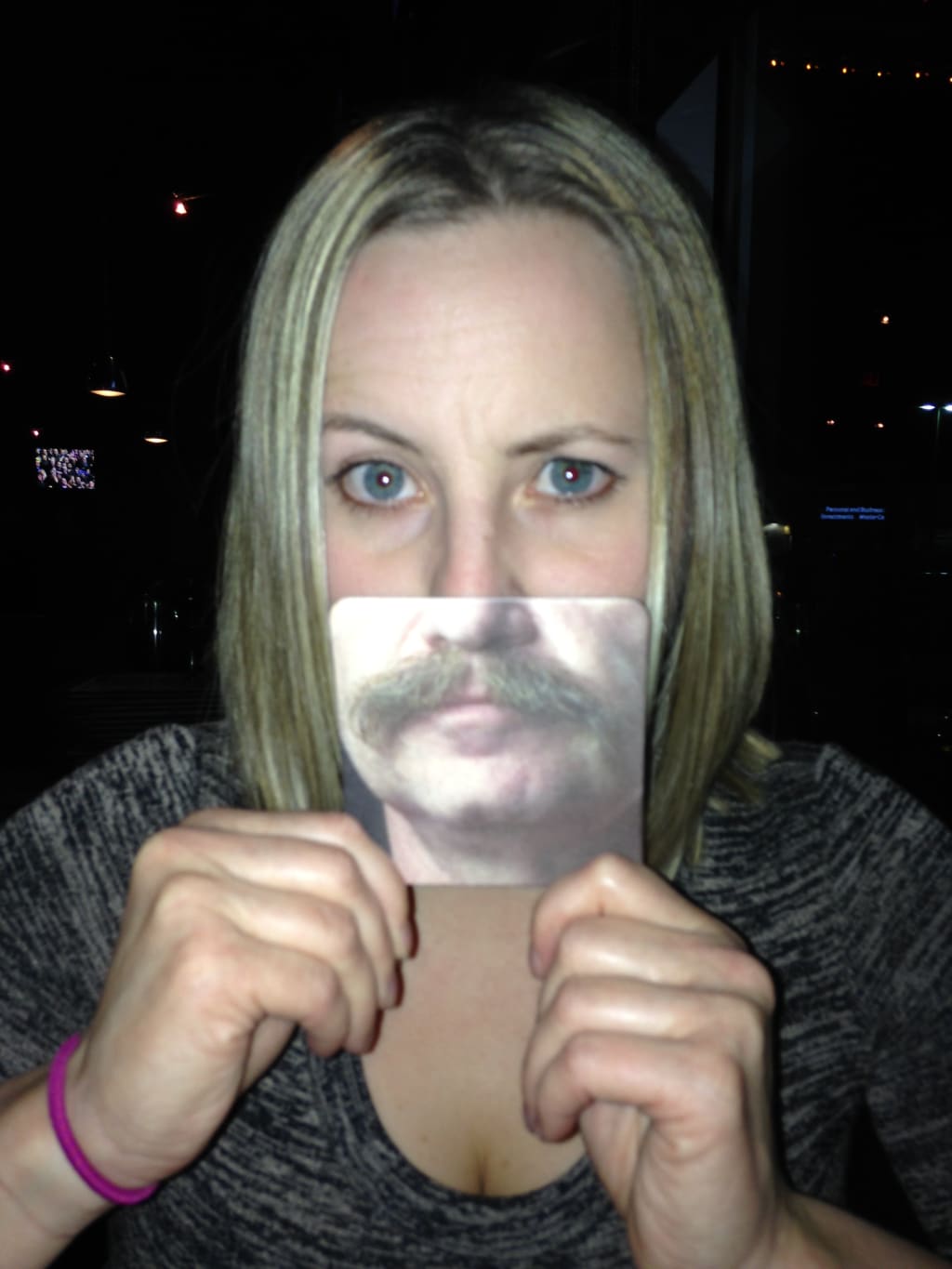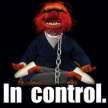That Bitch Is Crazy
The Need for Mental Health Resources in Canada

That bitch is crazy. The need for Mental Health resources in Canada.
In recent months or maybe even years, I have become somewhat of an advocate for ending stigma toward mental health. The spark started with taking Mental Health First Aid. A two-day course geared toward ending stigma and educating health professionals and general public on things such as psychosis, addiction, suicide prevention, and depression. Anyone who knows me personally knows the past few years I have struggled with divorce of an emotionally abusive person, struggled with my own personal addictions in the past, had a serious illness that affected both my cognitive functions and personal well being, and watched several family members struggle with their mental health and addictive personalities. Somehow, despite having serious odds stacked against me have come out on top to a point where I am finally at peace with it and with myself. This did not come without help. I have spent endless hours skimming internet articles, reading books about mental health, consulting councillors and medical professionals, and literally drove my inner circle crazy with my anxiety and need for emotional support. It took me years to finally accept advice from my doctor and try a medication and it wasn’t until I had literally researched the living shit out of what it was to be “crazy.”
Now that I am at peace with the way things are in my life, I want to share my experiences. I am currently in the works of writing a book about my experiences and I hope that it may serve as a voice for those in need of mental health resources and a catalyst to government actually providing these resources where they are lacking. In this article, I want to convey a message now that being “crazy” isn’t a negative thing. It is an illness that comes in many forms. It’s the depression, it’s the anxiety, it’s the external trigger(s), it’s the chemical imbalance, it’s the stigma attached to all of these things that prevent us from seeking proper treatment. I want to talk a little bit about a new term I learned recently in an article posted by a good friend that may have single handily saved my life, “Gaslighting.” And I want to generate discussion surrounding addiction and “self-medicating.” Most of all, I want to end stigma so those in need of help get the compassion and support instead of being left to suffer through their illness alone or consequently end their own suffering on their own terms.
Mental health affects each of us differently but all of us have been touched by it in some way. Stigma surrounding mental health often triggers our brains to instantly think of a person “going postal” or of a person having a severe psychotic or schizophrenic episode. Depression is often viewed as laziness when the patient is bedridden by the debilitating symptoms and suicide is viewed as a selfish means to end this suffering. The struggle to control these negative emotions alone often result in family and friends being pushed away by intolerable behaviors such as self-medicating (addiction) and unrealistic emotional reaction to seemingly minor problems. To sum up the vicious circle, seeking treatment for depression or anxiety is viewed as weak by our society and it is hard to trust the MD who is prescribing you medication based entirely on your voice. Meaning there is no medical testing for depression outside of you telling your doctor your symptoms and them prescribing according to your portrayal of your own symptoms. They don’t account for the details you’ve left out or that you might be embarrassed or afraid to tell them (such as using street drugs to self-medicate), they don’t test for serotonin levels in the blood, (a neurotransmitter affected by anti-depressant medication and also many street drugs) and they sure as hell do not educate you on what could happen if you mix the street drugs or alcohol with the medication. Many general practitioners will use a trial and error process to find the right medication for their patient. A process that could cause detrimental effects to the person because those neurotransmitters such as serotonin and dopamine are delicate and those medications they are prescribing can make minor problems much worse if not treated appropriately. Which leads me to my first statement;
Our society needs mental health focused clinics with specialized psychologists that are readily available to educate the general public and not just those in extreme need.
Now I can read your mind and I know what you’re thinking;
“But Heather, there are psychologists and psychiatrists everywhere and all you have to do is make an appointment.”
Maybe true but have you ever tried to access one? If you have you will know they are damn expensive and rarely covered by health benefits, except in extreme cases such as psychotic episode or Alzheimer’s disease. More often than notm your general practitioner is your first line defence in managing your mental health and more often than not their education meets their title and they are just that…generalised. And god forbid you have an addiction problem because detox facilities and rehab programs are usually full and reserved for the most extreme cases such as needle users and severe alcoholics and programs such as “Betty Ford” will run you a ripe $15,000 to $40,000, depending on how long you want to stay. As a teenager, I myself, was turned away by a rehab program because I “wasn’t far gone enough.” (Meaning I wasn’t smoking crack or using needles.) This type of system is detrimental for the user because it takes so much for them to admit the need for help and to be turned away just adds to the hopelessness. So this leads to my next statement.
We need more drug rehabilitation facilities and we need a better rehabilitation strategy.
Current rehab strategies are abstinence and counseling. Unfortunately though, relapse rates of this type of rehabilitation are 80 percent or higher. As a society, this rate should be alarming. When your doctor is your drug dealer this should also be alarming. The rate of people becoming addicted to opiates through pain management is staggering and in some towns and cities, entire generations of adults and kids are becoming addicted to narcotic pain medication prescribed by their own physician. It is a vicious cycle created by whom? Big pharma? The government? Lack of education? Lack of mental health resources? How can someone have a license to prescribe and at the same time have a complete lack of knowledge or empathy to treat the addiction and save the mental health of the very people who’s lives they are destroying? Why are we not getting to the root of the problem with these individuals?
This system needs radical changing. Doctors need to be held accountable for what and who they are prescribing to and patients need to be educated on the severe effects these drugs can have on their lives, period.
Addiction rehabilitation needs to be re-examined and studied as our knowledge surrounding this “touchy” subject is still primitive and our available treatments are not working. There has to be a better way.
That is all I am going to say about addiction and treatment for now because this article would seriously be never-ending if I do not but I will add a link to another article from the September issue of National Geographic about addiction and I sincerely am begging you to read it and to help me create a movement to beg our government to provide funding for testing of this research in Canada and in the United States. This issue is very real and affects us all.
Science of Addiction — National Geographic
And finally I want to say one more thing;
You are not crazy.
What does it really mean to be “crazy.” Is it failure to recognise or accept reality? Is it because someone told you that you are crazy? Is it because you had an overly emotional reaction to something perceived as minor to your spouse? Is it someone trying to convince you that you’re crazy in order to control you? (Gaslighting.) Whatever the reason for thinking you are “crazy,” it comes down to one true statement. Your symptoms may be real, or they may not be real, and that is okay. Seeking help for mental health or for your “feelings” is not negative thing. It is not weak and it sure as hell shouldn’t be up to an uneducated, emotionally abusive spouse or friend to decide if help is needed. A true supportive spouse or friend will not tell you you’re “crazy” and abandon you afterwards. A true friend or supportive spouse will support you in finding treatment and help you through the difficult time associate with your mental health. As a victim of gaslighting, I can tell you that it can be so hard to see past it because you’re so scared that you actually are “crazy” and you don’t want anyone to view you as “crazy” but that person is trying to control or manipulate you. That person is not supportive. That person is a negative influence on your well-being. Say goodbye to that person and take control.
Your mental health is not a joke.






Comments
There are no comments for this story
Be the first to respond and start the conversation.